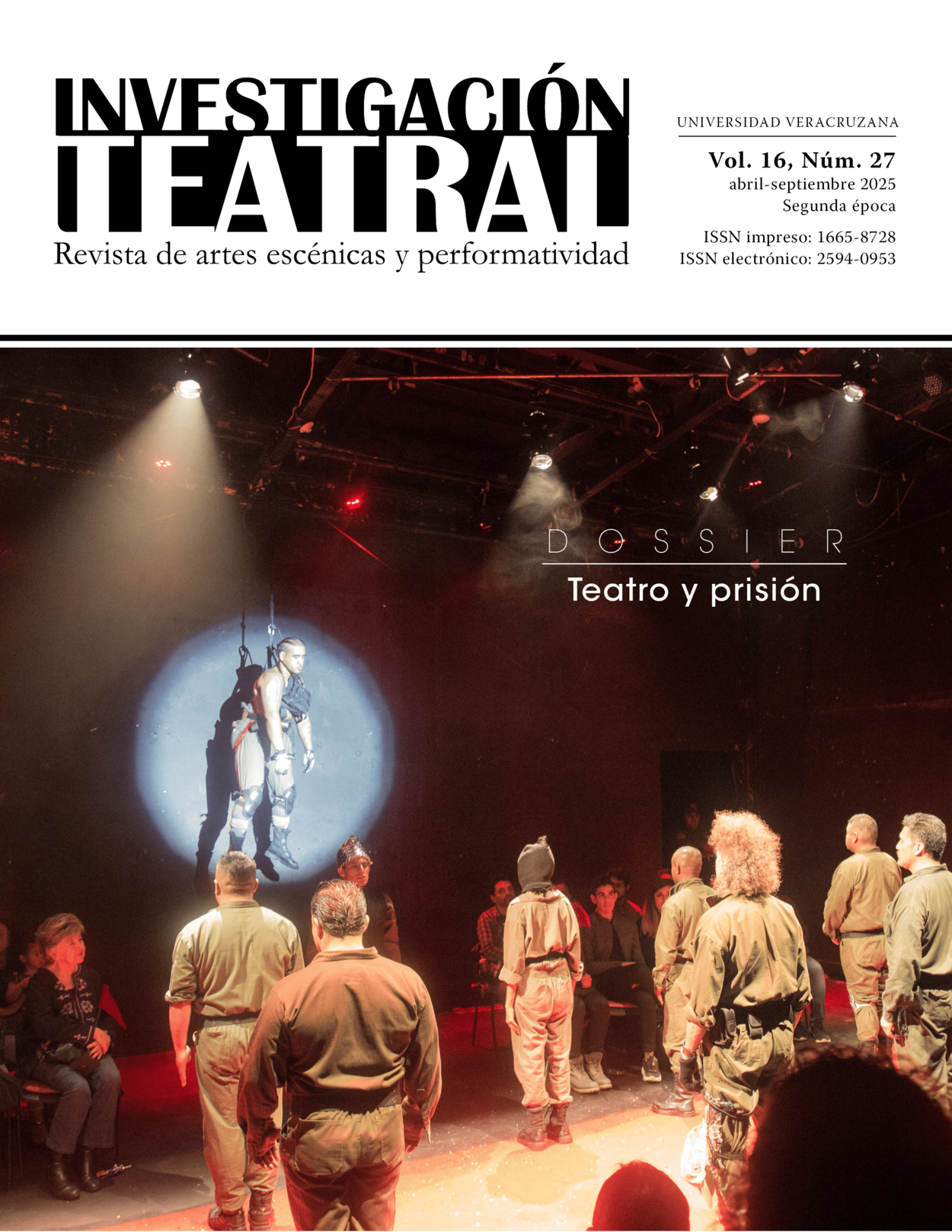Resumen
El concepto “talento” está profundamente ligado a la experiencia de vida del estudiante de artes y del artista profesional. Esta conexión es con frecuencia ambigua, ya que el término mismo está atrapado en una red de significaciones que pueden ser factores en detrimento de la construcción del performer y de sus propios procesos artísticos, creativos y prácticos. En este artículo proponemos revisar dichas significaciones en búsqueda de una nueva forma de definir, valorar y entender la habilidad del artista en escena. Al mismo tiempo, abogamos para que el término “talento”, después de su análisis y revisión documental y académica, se ponga sobre la mesa su posible eliminación del campo artístico en lo general, permitiendo el acceso de terminología que abone a la construcción del artista escénico desde una perspectiva global y transdisciplinaria.
The Influence of Talent and its Meanings in the Experience of the Stage Performer
Abstract:
The concept of “talent” is deeply linked to the life experience of art students and professional artists. This connection is often ambiguous since the term itself is trapped in a network of meanings that can hinder the performer’s artistic, creative, and practical processes. The authors propose to review these meanings in search of a new way to define, value, and understand the artist’s ability on stage. After the analysis and documentary review of the term “talent”, we advocate that it be eliminated from the theatrical and artistic field in general, giving way to terminology that better contributes to the construction of the performing artist from a global and transdisciplinary perspective.
Recibido: 31 de julio de 2024
Aceptado: 17 de diciembre de 2024
Citas
Auer, Leopold. (1980). Violin Playing as I Teach it. Dover Publications.
Barker, Chris. (2008). Cultural Studies: Theory and Practice. Sage.
Bloom, Benjamin. (Ed.). (1985). Developing Talent in Young People. Ballantine.
Borland, James H. (1997). The Construct of Giftedness. Peabody Journal of Education, 72(3 y 4), 6-20.
Buffington, Sean T. (2013). Art Teaching for a New Age. Chronicle of Higher Education, 59(42), B15-B16.
Colvin, Geoffrey. (2010). Talent is Overrated: What Really Separates World-class Performers from Everybody Else. Penguin.
Coyle, Daniel. (2009). The Talent Code: Greatness Isn’t Born. It’s Grown. Here’s How. Bantam Dell.
Dissanayake, Ellen. (1988). What Is Art For? University of Washington Press.
Ebin, Zachary. (2016). Shinichi Suzuki and Bird Song: Assessing Suzuki’s Claim that Musical Talent is Not Inborn. Canadian Music Educator, 57(3), 18-22.
Gagné, François. (2011). Academic Talent and Development and the Equity issue in Gifted Education. Development and Excellence, 3(1), 3-22.
Galton, Francis. (1869). Hereditary genius: An inquiry into its laws and consequences. Macmillan and Co. https://doi.org/10.1037/13474-000
Jaap, Angela & Patrick, Fiona. (2014). Teachers’ concepts of musical talent and nurturing musical ability: music learning as exclusive or as opportunity for all? Music Education Research, 17(3), 262–277. https://doi.org/10.1080/14613808.2014.950559
Kawabata, Maiko. (2004). Virtuoso Codes of Violin Performance: Power, Military Heroism, and Gender (1789-1830). 19th-Century Music, 28(2), 89-107.
Martens, Frederick Herman. (Ed.). (2006). Violin Mastery. Dover.
McPhee, Alastair, Stollery, Peter & Mcmillan, Ros. (2005). The Wow Factor? A Comparative Study of the Development of Student Music Teachers’ Talents in Scotland and Australia. Educational Philosophy and Theory, 37(1), 105-117.
Real Academia Española. (s.f.). Diccionario de la lengua española. https://dle.rae.es/talento
Scripp, Lawrence, Ulibarri, Devin & Flax, Robert. (2013). Thinking Beyond the Myths and Misconceptions of Talent: Creating Music Education Policy that Advances Music’s Essential Contribution to Twenty-First-Century Teaching and Learning. Arts Education Policy Review, 114(2), 54-102. https://doi.org/10.1080/10632913.2013.769825
Simonton, Dean Keith. (1999). Origins of Genius: Darwinian Perspectives on Creativity. Oxford University.
Suzuki, Shinichi. (1983). Nurtured by Love: The Classic Approach to Talent Education. (Waltraud Suzuki, Trad., 2a ed.). Warner.
Syed, Matthew. (2010). Bounce. Harper Collins.
Valachova, Daniela, Bencik, Stanislav & Kovakova, Barbora. (2019). Creating and Evaluating the Identification of Children and Youth Talent for Fine Art. Ad Alta: Journal of Interdisciplinary Research, 9(1), 310-313.

Esta obra está bajo una licencia internacional Creative Commons Atribución-NoComercial 4.0.


